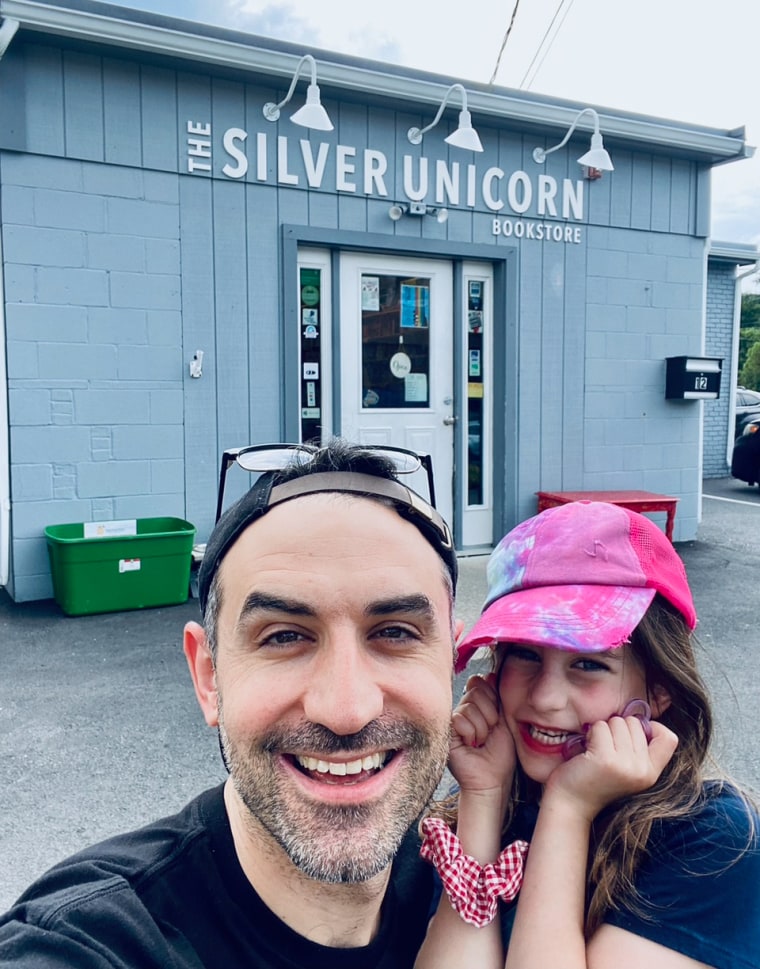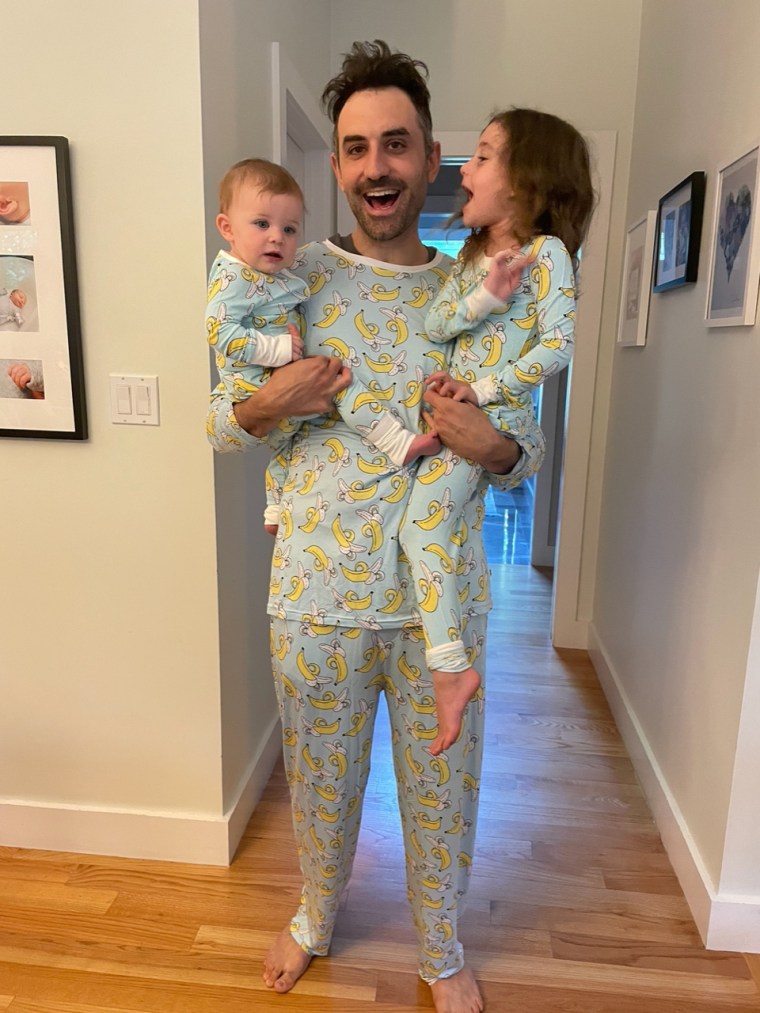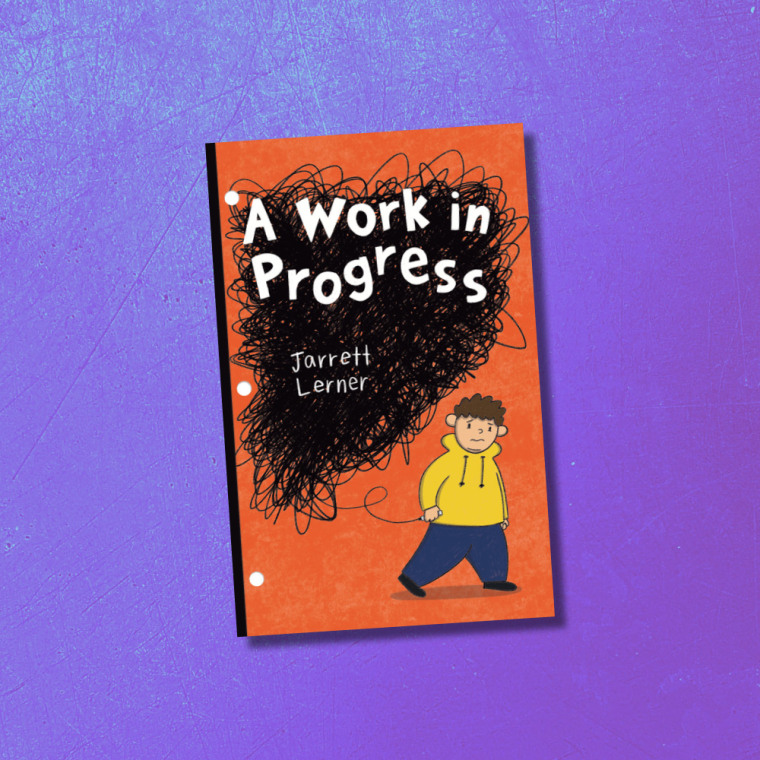Before we had kids, my wife and I talked about whether we were ready to do so. We were excited about the idea of starting a family, but I’d be lying if I said we weren’t nervous, too. We couldn’t have possibly imagined the countless ways having children would alter our lives, but we understood that our lives would forever change. There were moments when I wasn’t sure I could be a father, and that doubt left me terrified.
Ultimately, my wife and I decided that we would probably never feel fully ready to take such a monumental step, and that a little bit of nervousness was appropriate. While we had some difficulties, we eventually got exciting news. My wife was pregnant. We had a due date.
In the months leading up to the birth of our first daughter, I experienced that same mix of excitement and nervousness, only more intensely than I ever had before. Those moments of terror about my fitness for fatherhood, though brief, came more frequently.
Then it happened: She was here. (Not that simply or quickly, of course — my wife would be the first to tell you that.) As soon as I held my daughter for the first time, all my nervousness evaporated. My doubts about being ready and able to be a parent were gone. In a flash, being a dad eclipsed every other goal and desire. Looking at my daughter, I not only knew that I could do this, but that I would do it.

I want to be clear: When it comes to having kids, I still have plenty of worries and fears. There are days when all parenting seems to be is worrying about 600 different things. But my fear of whether I was equipped to be a father — that is what vanished as soon as I actually became one.
What I couldn’t have predicted though — and didn’t read about in any of the parenting books I pored over — was that having kids would make me braver. Just recently, my kids helped me do the bravest thing I’ve ever done.
I’m an author-illustrator. My most popular books feature farting robots, super-heroic taco ingredients and an irritable cat. I lean heavily on humor to show children how fun and rewarding reading can be. But there was another story I’d always wanted to tell — one that was decidedly more serious. It was the story of how, growing up, I’d been bullied and body-shamed, and as a result, had developed body dysmorphia and adopted a bevy of behaviors that I now understand to be disordered eating.
I never told anyone about any of this. Not until I was an adult, and I began to share with my wife after we’d been married for several years. I was too ashamed to discuss it. But as the years passed, opening up is exactly what, deep down, I knew I needed to do if I wanted to begin to heal.

In college, I began writing fragments of my story — though masked, importantly, as fiction — and shared them in my creative writing courses. And secretly, during the decade after I graduated, I tried to get my whole story down, to find the right words to capture my experiences fully and authentically. But I abandoned every attempt, usually because I couldn’t bring myself to be as honest on the page as this story required me to be. I’d ask myself after every half-finished manuscript, what was the point of doing this in the first place? Even if I finished writing such a raw, personal story, it wasn’t like I was ever going to show it to anyone. And if I did, it wasn’t like I’d ever fess up about the protagonist being a thinly veiled version of myself.
Then I had kids, and along with everything else, that all changed.
It happened when my daughter was a toddler, and my wife was pregnant with our second child. We were at the park near our house, and my daughter was trying to ride her bike without training wheels. She’d seen older kids do it, and even though I thought she was a little young, she wanted to try. So, there we were, at the park, trying … and failing. She was struggling. She was frustrated — or so I thought. But when I spoke to her about what was going on, I realized that it was more complicated than that. She was frustrated, sure — but also embarrassed. There were probably a dozen other kids at the park that day, gracefully cruising around on their bikes. And there she was, tipping over before she could even put her feet on the pedals. It was humiliating for her. “You can ride a bike,” she said. “Mommy can ride a bike. Everyone can ride a bike. Everyone but me.”
That day in the park, I realized that, in addition to being strong for my daughter — making sure she always knew that she was loved and safe and cared for — it was just as important that I be weak. That I let her know I’m imperfect, that I’m still learning and growing myself, that I have good days and bad days, that I struggle and get scared, and that there are tons of things I can’t do alone and need help with.
Since then, I’ve been conscious about modeling vulnerability and displaying the ways in which mistakes are opportunities for growth. I’ve also become increasingly aware of the fact that sharing stories about failure can be invaluable. I can sit my daughters down and show them how well I can ride a bike, but they won’t get much of anything out of it. If I tell them, though, how hard it was for me to learn, and how I fell and fell and fell but, thanks to the encouragement of my parents and my own determination, always got back up and tried again — that is something they can use to get back up and try again themselves. It worked like that for my daughter that day in the park.

The lesson I learned that day about the power of sharing our weaknesses has informed my entire career. It’s the theory behind every workshop and presentation I do at schools and libraries. It’s baked in, some way or another, to every book project of mine. And it’s what finally led to me sharing my story, the one about the most vulnerable time in my life.
My book, “A Work in Progress,” published in May. It’s the story of a kid named Will Chambers, but Will Chambers is really me. Making the book and sharing it with the world has been the most difficult thing I’ve ever done. But what pushed me through the grueling writing process and gave me the courage to get on stage and open up to crowds, day after day, is the lesson I learned that day in the park with my daughter, and the bravery she and my other two daughters have given me. I know that being vulnerable and sharing my story can and will lead to good. And every time I do it, it gets easier. Just like riding a bike.